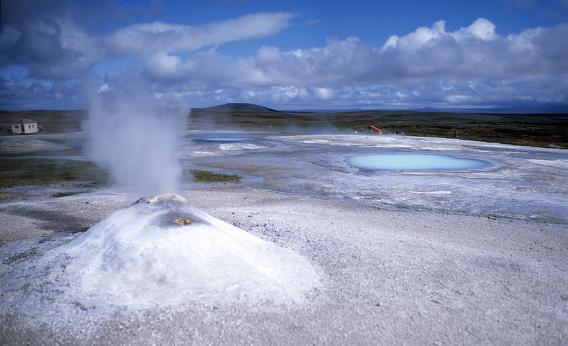The last time the Internet got to debating Iceland (which I think we do too much of; substantially more people live on Staten Island than Iceland), I think the discussion rapidly ended up veering off topic but I think Sarah Lyall’s New York Times piece on how Iceland’s weathering the crisis gets the core issue right. Iceland’s great success is that despite a mammoth financial crisis, the unemployment rate is a modest 6 percent. In Ireland, by contrast, it’s almost 15 percent.
The issue here is that high unemployment is an exceptionally perverse consequence of financial crisis. If you find yourself suddenly more deeply indebted than you’d anticipated, what you need to do is work more. Try to freelance more or pick up more shifts or work a second job or hustle harder for commissions. Anything to increase your income. But at the same time, you’re going to want to reduce your spending. And the problem is that if lots of people are trying to reduce their spending, there’s the risk that people won’t be able to work more even though they really need more income. Instead what happens is that Irish (and Spanish and so forth) people, in the aggregate, are doing less work than they were pre-crisis even though they need the income more. It’s a mess.
Currency depreciation by no means eliminates the pain of an economic crisis. On the contrary, it makes everyone poorer. But by spreading the shock across all citizens and assets, it does a much smoother job of mitigating the secondary trauma of idleness and unemployment.
In the piece, Jon Danielsson remarks that Iceland has “not yet found a way to build a prosperous country for the future.” That’s an overstatement. Iceland is one of the richest countries on earth and had that status even at the nadir of the recession. What is true is that nothing Iceland has done since the crisis has managed to restore the prosperity Iceland enjoyed at the peak. At the peak Icelandic people benefitted from massive international overestimation of the merits of Iceland’s banks, and there’s no conjuring trick to do away with the losses that occur when that unfolds. In the broad scheme of things both Iceland and Ireland are prosperous well-educated countries that enjoy stable democratic governments and low levels of corruption. Most likely they’ll both be fine. But unemployed people rarely feel fine, and a government that succeeds in avoiding prolonged spells of mass unemployment is accomplishing something very useful.
Iceland seems to be getting the job done.
